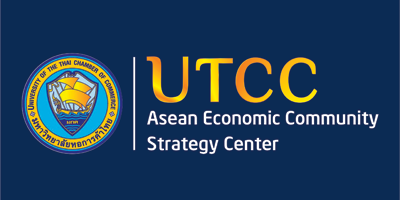Myanmar: Credit guarantee insurance not helping small businesses
Credit guarantee insurance was introduced under the former government in 2014 but the system has not been widely adopted by banks and businesses. As a result, financial support for SMEs remains inadequate.
So far, CB bank has offered loans to 21 businessmen, KBZ has given loans to only three, and banks are still unable to trust the businesses under the credit guarantee insurance, according to Daw Aye Aye Win, director general of the Ministry of Industry, SME Development Department.
Insurance firms began selling credit guarantee insurance for SMEs in May 2014. The insurance scheme saw state-owned Myanma Insurance or private firms reimburse lenders to SMEs some 50 percent of the loan in the event of a default, which could serve the purpose as a collateral for bank loans. But one year after the launch of the scheme, the then-deputy finance minister U Maung Maung Thein said no SMEs had taken advantage of the insurance.
The situation has not significantly improved since then.
“Banks are reluctant to extend loans to SMEs under credit guarantee insurance. They are not quite familiar with the CPI [consumer price index] system. Small businesses have to be qualified and ready to get loans. They also need the trust of the banks,” Daw Aye Aye Win said.
In order to receive loans without using collateral, SMEs are required to submit a business plan and an income statement for the preceding two years to banks. But SMEs are weak in fulfilling those criteria, according to Ko Zin Phyoe Paing, chief executive officer of MESI Entrepreneur SME.
Extending loans through collateral alone is the instruction from the Central Bank of Myanmar, according to the banks. Therefore, the Central Bank has to change its policy if SMEs want to access loans without collateral, said Dr Maung Maung Lay, vice chair of the Union of Myanmar Federation of Chambers of Commerce and Industry (UMFCCI).
As there are no specific stipulations to extend loans, private banks should be allowed to manage the loan criteria, depending on their trust on individual cases, said Central Bank director general U Win Thaw.
According to the suggestions from SMEs, a regulation will be devised to make it compulsory for private banks to extend a minimum percentage of loans to the agriculture sectors and SMEs, he told the Myanmar Times.
Organisations or institutions are needed to facilitate the operations between the banks and the SMEs. Without the necessary structure, the flow of capital will not be adequate to develop the economy.
Human capacity, or, in other words, financial expertise and technical know-how, is also vital for SMEs’ development. SME Development Enterprise, under the Ministry of Industry, started producing skilled labour last year but there is a lot more to be done. There is still a long way to go before SMEs and SME products and services can win access to the international market and compete with other regional players, Daw Aye Aye Win said.
In October 2016, the SME law was stipulated and the SME Central Committee, led by the president, was also created. But the committee has just begun its work since March 1, 2017. More organisations are going to be established according to the law and it is now picking up momentum, she explained further.
Despite the shortfalls, there are good signs for the sector. Company registration fees have been reduced from 10 lakhs to 5 lakhs. There are still many practicality issues for the current government to resolve, according to Ko Zin Phyoe Paing.
“It is difficult for the government to give full assistance. They should consider which SMEs should be prioritised.
“Can a nation’s revenue be increased by promoting export-import SMEs? Can the economy be developed? Is it good to allow existing SMEs to join forces with technology in industrial zones and foreign firms?” he said.
Currently, SME loans focus only on industrial SMEs. It would be better if loans can also extend to trade SMEs and service SMEs, he added.
Access to information is a requirement for SME businessmen and thus there should be a platform or a way for knowledge to be shared among all SMEs in the country.
Myanmar will have to work hard for its SMEs to develop, especially before the ASEAN Economic Community emerges in 2018. If those efforts are effective, the SMEs can grow, acquire the expertise of foreign business entities, and compete in the ASEAN market then. But time is limited. The government is responsible for providing assistance and support for SMEs but it takes much more than that for the sector to take off.
Source: http://www.mmtimes.com/index.php/business/25609-credit-guarantee-insurance-not-helping-small-businesses.html


 Thailand
Thailand




